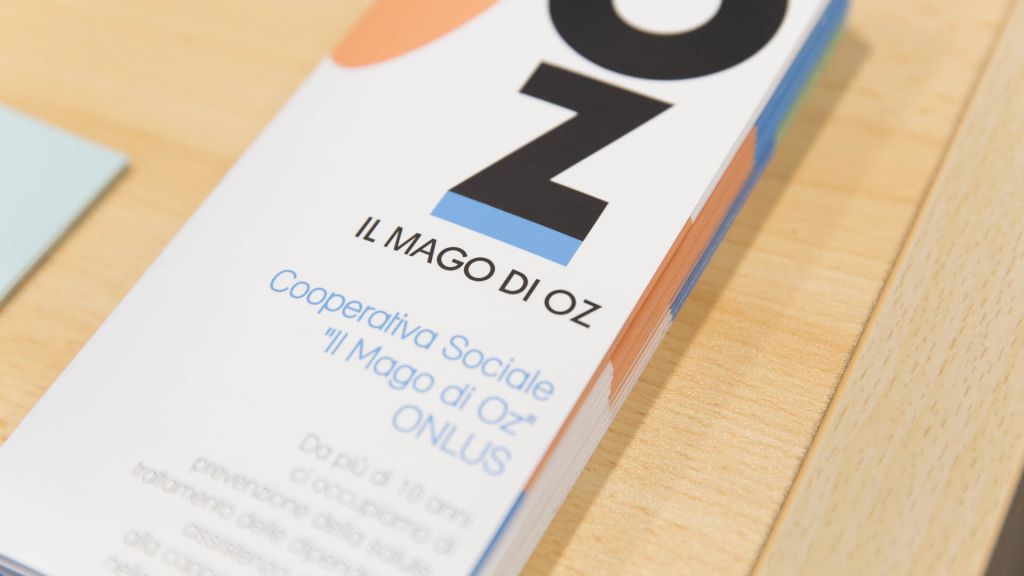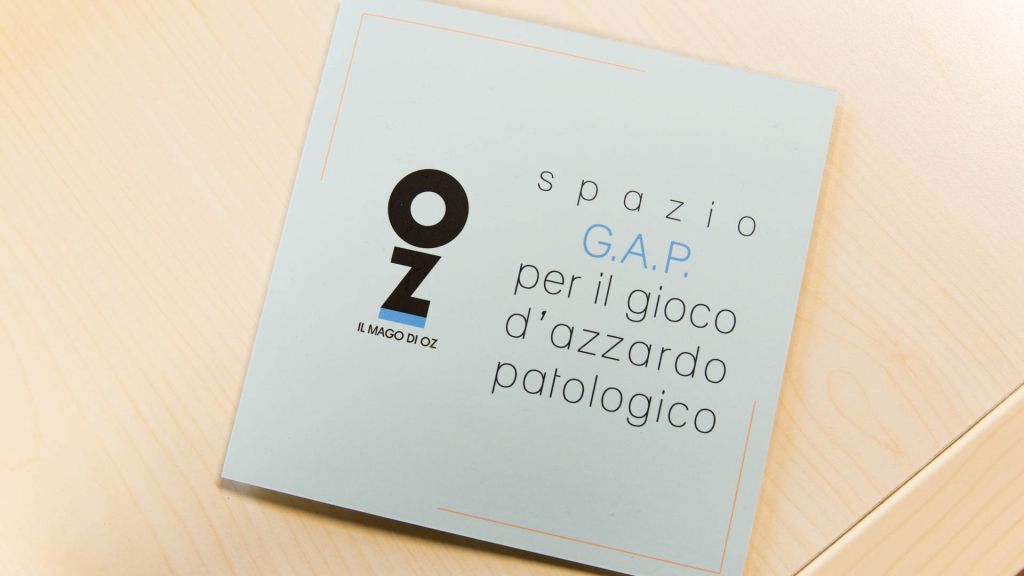In 2004, at the headquarters of the Solco consortium in Brescia, a group of Brescian private social companies dedicated to managing people’s addiction issues, met periodically. The then president of Solco Luigi Chiari suggested to this coordination to reflect upon the activation of a SMI (Integrated Multidisciplinary Service) in the territory of the ASL of Brescia.
While a part of the participating bodies substantially saw in the SMI an intrusion into the system of services and a return to the conflict between the public and private service – that so much characterized the 80s and 90s –, other bodies took on a more prudent and less ideological position. Gruppo Fraternità and Pinocchio Group enthusiastically joined this proposal and accepted the opportunity that first the national legislation (Atto d’intesa, September 1999) and the regional legislation of Lombardy (dgr. 12621 April 2003) offered to the realities of the private social sector, namely the opportunity of managing and diagnosing addiction problems, as it was in the 70s when such problems spread. For the social private sector this represented the occasion to recover a direct relationship with addiction problems and to respond to the new needs and methods of consumption that had been spreading for some years. At that point the activation path of the first operating unit began. The first step was the establishment of the managerial body. On October 12th 2004 the “Il Mago di Oz” social cooperative was born. With the ASL resolution of October 4th 2006, the service obtained the authorization to operate and with the Dgr dated 20th September 2006 the accreditation process ended. On October 23rd 2007 the contract was signed with the ASL of Brescia, therefore the SMI of the “Il Mago di Oz” Cooperative could begin to provide its services.
The first SMI began operating in Ospitaletto .
IL MAGO DI OZ NPO
ABOUT US
During the first months, technical protocols (health and pharmacological protocols) and administrative procedures were developed. We believed, we still do, that a SMI managed by the private social sector should be a dynamic outpatient service built around the needs of its patients: differentiated schedules, immediate reception and attentive social and health professionals who listen to patients. The growing turnout arriving at the service from the entire province of Brescia, led to open three more operational units:
the SMI of Rezzato (dgr n° 254, July 14th 2010), the SMIs of Bagnolo Mella (dgr n° 1161, December 29th 2010) and of Pisogne (dgr n° 1162, December 29th 2010).
When this adventure started, few people believed that we were building something significant to the field of the addiction services and many were sceptical about the creation of the SMI "Il Mago di Oz", but we had a conviction: the need of welcoming people suffering from addiction problems was (and continues to be) in steady growth and it was necessary to offer an answer to a phenomenon in constant evolution and expansion. In 2015 the network of services provided by the Cooperative “Il Mago di Oz”, widens through the opening of the Comunità Terapeutica Donatello (formerly Ce.B.S.) of Brescia. In 2017, instead, the Consultorio Familiare Sant’Andrea of Iseo is acquired. The Services offered by the “Il Mago di Oz” Cooperative are various, but the principles guiding our work derive from the desire to assured our users to be welcomed, equality, efficiency, effectiveness and confidentiality in order to carry out interventions that can prevent, support or change situations of difficulty and discomfort.
The Story of our Name
The name of our Cooperative is inspired by the homonymous modern fairy tale written by L. Frank Baum, a story that can be read as a metaphor for the process of change that we hope will install in our users. Namely this metaphor is: to gain full awareness of the user’s potential and to learn new parameters which help in giving value to their lives and experiences. From a symbolic point of view, the Kingdom of Oz can represent that intimate place where every human being re-elaborates personal experiences only with themselves. At the end of the story, Dorothy returns home and tells what happened to her, but nobody believes her. Oz symbolises the ounce, the measure unit. For this reason, the Kingdom of Oz is also the place where weight is determined, in which we measure ourselves and give value to our life experiences. It is the place where we distinguish between good and evil, where we reflect upon what is necessary to enrich ourselves; this will allow us to face whatever will come. We can say that Oz is the place of consciousness. Additionally, the desire of returning back home symbolizes a need proper to humankind: the need for searching for their origins, to seek answers to questions about life by delimiting the field of what we know and building walls of psychic defence. In order to return home, the witches advise Dorothy to turn to the Wizard of Oz, sovereign of the city of Emerald, endowed with extraordinary powers. On the way to the Emerald City, Dorothy deals with three aspects of human personality. First, the scarecrow wanting a brain, represents lightness of thought and action. Second, the tin man wanting a heart, represents the inability to love, to feel passion and to be interested. Third, the lion wanting to have more courage represents the incapacity of men to know how to seize situations in their favour, to "risk" or try to convert their thoughts into actions, the inability to grasp life as an opportunity. Only at the end of the "journey", these three desires can be said accomplished. Then, the whole company – Dorothy, the scarecrow, the tin man and the lion – goes to the Wizard of Oz and each member makes its request. Unfortunately, the Wizard of Oz cannot help them, because nothing can magically change; however, he manages to make the scarecrow, the tin man and the lion understand that they already have the qualities they wanted and convinces Dorothy that she already possessed the tool to go home (the ruby shoes). Therefore, the meaning of this fairy tale is that everyone's potential is already within us, we just have to learn to recognize it!
Excerpt: The Symbolism of "Il Mago di Oz" by F. Scatigno
IL MAGO DI OZ NPO
ABOUT US
Nel 2004 presso la sede del consorzio Solco a Brescia si riuniva periodicamente un gruppo di realtà bresciane del privato sociale che si occupava di problematiche di dipendenza. L’allora presidente del consorzio, Luigi Chiari propose a tale coordinamento la possibilità di avviare un percorso di riflessione sull’attivazione di uno SMI (Servizio Multidisciplinare Integrato) nel territorio dell’ASL di Brescia. Gruppo Fraternità e Pinocchio Group aderirono a tale proposta e accolsero l’opportunità che la normativa nazionale prima (Atto d’intesa settembre 1999) e la normativa regionale della Lombardia poi (dgr.12621 aprile 2003) offrivano alle realtà del privato sociale di occuparsi della presa in carico e della diagnosi di problematiche di dipendenza. Il primo passo fu la costituzione dell’ente gestore, il 12/10/2004 nasce la cooperativa sociale Il Mago di Oz. Nel 2006 il servizio ottiene l’Autorizzazione al funzionamento e con la dgr del 20/12/2006 il percorso di accreditamento si conclude. Nel 2007 venne stipulato il contratto con l’ASL di Brescia. Il primo SMI inizia a operare a Ospitaletto. Nei primi mesi di lavoro vengono messi a punto i protocolli tecnici (sanitari e farmacologici) e le procedure amministrative. Il primo SMI inizia a operare a Ospitaletto. Nei primi mesi di lavoro vengono messi a punto i protocolli tecnici (sanitari e farmacologici) e le procedure amministrative. Ci si muove con l’idea che uno SMI gestito dal privato sociale debba essere un servizio ambulatoriale dinamico costruito in funzione delle esigenze dei suoi pazienti: orari differenziati, accoglienza immediata e operatori sociali e sanitari attenti ad ascoltare i pazienti. La crescita continua dell’affluenza al servizio proveniente da tutto il territorio della provincia di Brescia ha portato presto all’esigenza di aprire altre tre unità operative. Nel 2010 entrano in funzione lo SMI di Rezzato (dgr Lombardia n°254), lo SMI di Bagnolo Mella (dgr n° 1161) e lo SMI di Pisogne (dgr n° 1162). Nel 2015 la rete di servizi della cooperativa si allarga attraverso l’apertura della Comunità Terapeutica Donatello (ex Ce.B.S.) di Brescia e nel 2017, viene acquisito il Consultorio Familiare Sant’Andrea di Iseo. Nel 2018 viene acquisito il Centro Diurno e il Centro di Pronta Accoglienza Residenziale di Spinadesco, subentrando alla cooperativa Fuxia. I principi che guidano il nostro lavoro nascono sempre dalla volontà di garantire ai nostri utenti accoglienza, eguaglianza, efficienza, efficacia e riservatezza per realizzare interventi che possano prevenire, supportare o modificare le situazioni di difficoltà e disagio.
The Story of our Name
Il nome della nostra Cooperativa si ispira all’omonima fiaba moderna scritta da L. Frank Baum, un racconto che può essere letto come una metafora del processo di cambiamento che ci auguriamo si inneschi nei nostri utenti ovvero: la presa di coscienza delle proprie potenzialità ed imparare ad utilizzare una nuova misura per dare valore alle proprie esperienze. Da un punto vista simbolico Il Regno di Oz, dal quale Dorothy cerca di andar via per tornare a casa, può rappresentare quel luogo intimo dove ogni uomo rielabora le esperienze personali solo con se stesso; infatti quando Dorothy alla fine della storia torna a casa e racconta ciò che le è successo, nessuno le crede. Oz inoltre è il simbolo dell’oncia, unità di misura, per cui Il Regno di Oz è anche il luogo in cui si dà un peso, in cui si misura e si dà un valore, dove si distingue tra bene e male, dove si riflette su ciò che è stato per arricchirsi di un nuovo peso per affrontare e misurare ciò che sarà. Possiamo dire che è il luogo della coscienza. Il desiderio di tornare a casa, d’altra parte, simboleggia il bisogno che l’uomo ha da sempre di cercare le proprie origini, di cercare delle risposte alla condizione dell’essere e ai limiti della vita perimetrando il campo del conosciuto e sollevando delle mura (pareti) di difesa psichica. Per tornare a casa le streghe consigliano a Dorothy di rivolgersi al Mago di Oz, sovrano della città di Smeraldo, dotato di fantastici poteri. Sulla strada verso la Città di Smeraldo Dorothy deve fare i conti con tre aspetti della personalità. Lo spaventapasseri che vorrebbe avere un cervello rappresenta la leggerezza di pensiero e d’azione; l’uomo di latta che vorrebbe avere un cuore rappresenta l’incapacità di amare, di provare passioni e di interessarsi; mentre il leone che vorrebbe avere più coraggio rappresenta l’incapacità dell’uomo di saper cogliere a proprio favore le situazioni, di “rischiare” o provare realizzando il pensiero in azioni, l’incapacità di cogliere la vita come una occasione. Solo alla fine del “viaggio” queste tre peculiarità dell’uomo possono dirsi realizzate. Tutta la compagnia quindi si avvia verso il Mago di Oz per fare le proprie richieste. Il Mago di Oz, tuttavia, non può fare a meno di ammettere che niente può cambiare in modo magico. Riesce però a far comprendere allo spaventapasseri, all’uomo di latta e al leone che avevano già le qualità che desideravano e a Dorothy che lo strumento per tornare a casa (le scarpette di rubino) era già in suo possesso.
Excerpt: The Symbolism of "Il Mago di Oz" by F. Scatigno
The Story of our Name
Il nome della nostra Cooperativa si ispira all’omonima fiaba moderna scritta da L. Frank Baum, un racconto che può essere letto come una metafora del processo di cambiamento che ci auguriamo si inneschi nei nostri utenti ovvero: la presa di coscienza delle proprie potenzialità ed imparare ad utilizzare una nuova misura per dare valore alle proprie esperienze. Da un punto vista simbolico Il Regno di Oz, dal quale Dorothy cerca di andar via per tornare a casa, può rappresentare quel luogo intimo dove ogni uomo rielabora le esperienze personali solo con se stesso; infatti quando Dorothy alla fine della storia torna a casa e racconta ciò che le è successo, nessuno le crede. Oz inoltre è il simbolo dell’oncia, unità di misura, per cui Il Regno di Oz è anche il luogo in cui si dà un peso, in cui si misura e si dà un valore, dove si distingue tra bene e male, dove si riflette su ciò che è stato per arricchirsi di un nuovo peso per affrontare e misurare ciò che sarà. Possiamo dire che è il luogo della coscienza. Il desiderio di tornare a casa, d’altra parte, simboleggia il bisogno che l’uomo ha da sempre di cercare le proprie origini, di cercare delle risposte alla condizione dell’essere e ai limiti della vita perimetrando il campo del conosciuto e sollevando delle mura (pareti) di difesa psichica. Per tornare a casa le streghe consigliano a Dorothy di rivolgersi al Mago di Oz, sovrano della città di Smeraldo, dotato di fantastici poteri. Sulla strada verso la Città di Smeraldo Dorothy deve fare i conti con tre aspetti della personalità. Lo spaventapasseri che vorrebbe avere un cervello rappresenta la leggerezza di pensiero e d’azione; l’uomo di latta che vorrebbe avere un cuore rappresenta l’incapacità di amare, di provare passioni e di interessarsi; mentre il leone che vorrebbe avere più coraggio rappresenta l’incapacità dell’uomo di saper cogliere a proprio favore le situazioni, di “rischiare” o provare realizzando il pensiero in azioni, l’incapacità di cogliere la vita come una occasione. Solo alla fine del “viaggio” queste tre peculiarità dell’uomo possono dirsi realizzate. Tutta la compagnia quindi si avvia verso il Mago di Oz per fare le proprie richieste. Il Mago di Oz, tuttavia, non può fare a meno di ammettere che niente può cambiare in modo magico. Riesce però a far comprendere allo spaventapasseri, all’uomo di latta e al leone che avevano già le qualità che desideravano e a Dorothy che lo strumento per tornare a casa (le scarpette di rubino) era già in suo possesso.
Excerpt: The Symbolism of "Il Mago di Oz" by F. Scatigno
IL MAGO DI OZ NPO
OUR MISSION
We are convinced that person-oriented services must take care of the persone overall.
INDIVIDUAL SERVICES
COLLABORATIONS WITH INSTITUTIONS
COLLABORATIONS WITH THE REGION
IL MAGO DI OZ NPO
OUR MISSION
We are convinced that person-oriented services must take care of the persone overall.


